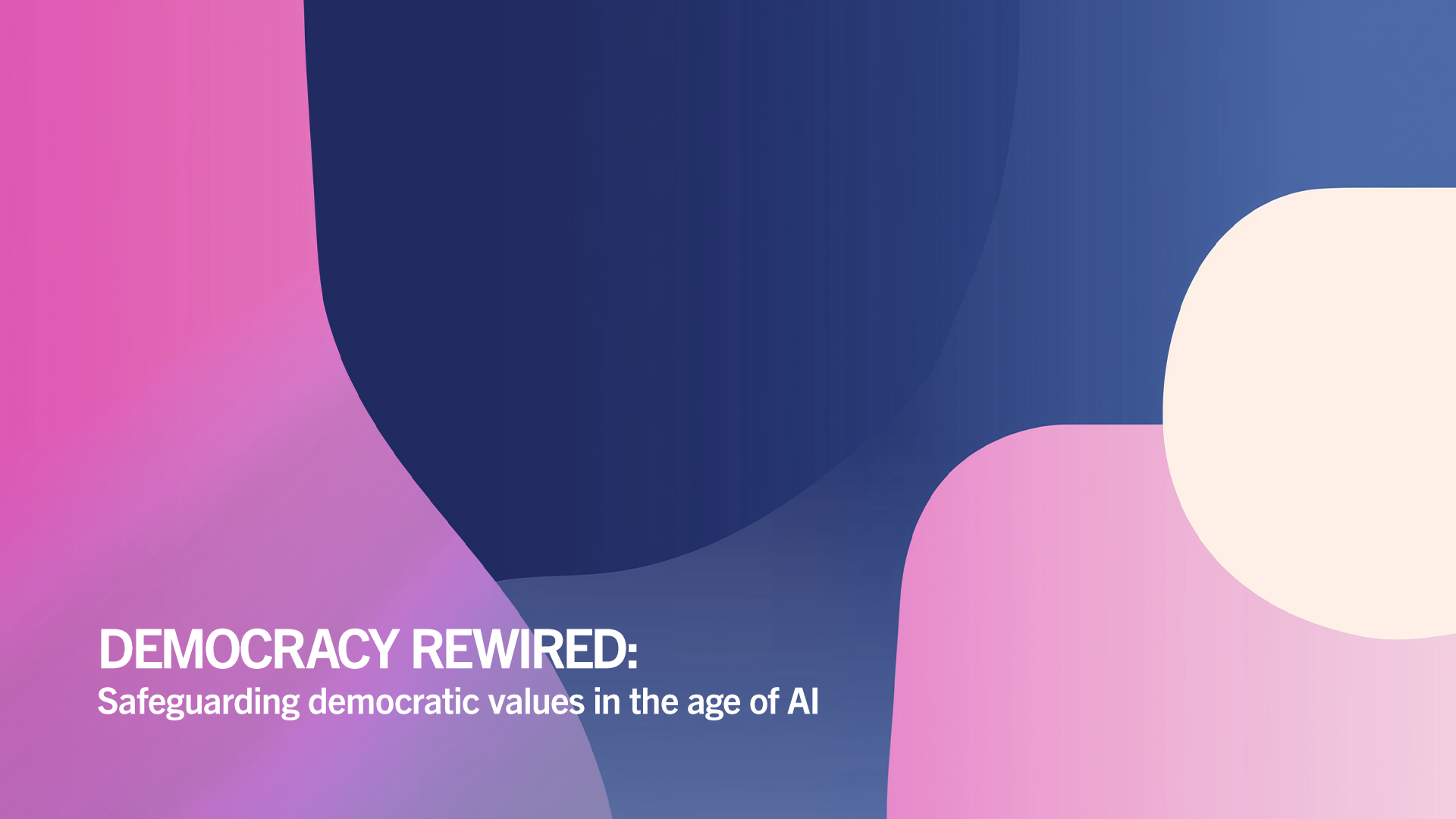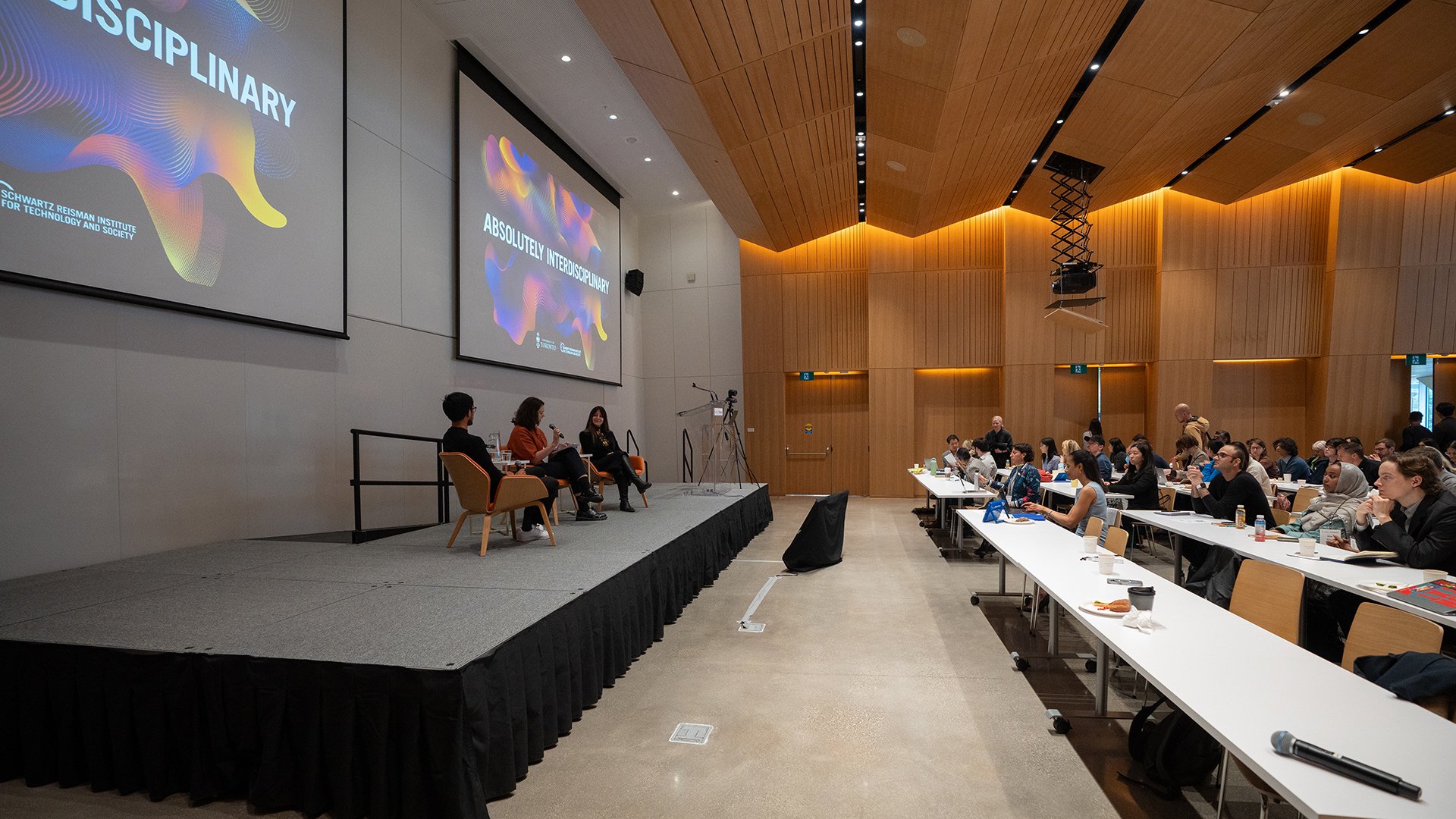WHAT’S HAPPENING
Here’s what we’re thinking about, talking about, and working on at the Schwartz Reisman Institute.
AI companions: Regulating the next wave of digital harms
From AI chatbots marketed as digital partners to voice assistants designed for intimacy, these systems promise connection while raising urgent questions about privacy, manipulation, and digital addiction.
Democracy rewired: SRI essay series explores safeguarding democratic values in the age of AI
In a new essay series, the policy team at the Schwartz Reisman Institute for Technology and Society examines AI’s impact on the values underpinning democratic societies and governance. The series explores how AI, if left unchecked, may impact democracy – offering both an opportunity to reaffirm democratic values and critically assess the role of AI governance and regulation.
Absolutely Interdisciplinary 2025 explores new frontiers in AI research
At SRI’s annual conference, participants discussed future directions and key challenges in AI research, including the complexities of aligning advanced AI with human values and interdisciplinary perspectives on AI safety.
Can a market-based regulatory framework help govern AI? New report weighs in
In April 2024, the Schwartz Reisman Institute for Technology and Society (SRI) hosted a workshop that brought together 33 high-level experts to explore the viability of regulatory markets. Over the course of the workshop, participants identified key challenges and worked through practical steps to move from theory to operationalization, laying the groundwork for a clear roadmap toward future governance. Their findings are captured in a new report (PDF) published today by SRI.
Are humans becoming obsolete? David Duvenaud on AI’s growing dominance
SRI Chair David Duvenaud’s op-ed in The Guardian explores the impact of AI on human relevance and suggests strategies for adapting to ensure we aren't outpaced in every area of society.
SRI graduate fellows explore the evolution of genomic language models
Can AI unlock the hidden rules of our DNA and revolutionize medicine? SRI Graduate Fellows Micaela Elisa Consens and Ben Li explore this question in a new commentary examining the potential of genomic language models to transform biomedical research.
Absolutely Interdisciplinary returns to explore new frontiers in AI research
The Schwartz Reisman Institute’s annual academic conference Absolutely Interdisciplinary returns for 2025 to explore interdisciplinary approaches to AI governance, risk and safety.
What’s Next After AIDA?
In the wake of AIDA’s death and with a federal election on the horizon, a key question has emerged: what’s next for Canada after AIDA?
Unequal outcomes: Tackling bias in clinical AI models
A new study by SRI Graduate Affiliate Michael Colacci sheds light on the frequency of biased outcomes when machine learning algorithms are used in healthcare contexts, advocating for more comprehensive and standardized approaches to evaluating bias in clinical AI.
Upcoming SRI Seminars showcase new insights on cutting-edge AI research
The SRI Seminar Series returns for 2025 with leading experts exploring AI’s impacts from a wide range of disciplines, including computer science, psychology, law, philosophy, and communication.
Information about our world: SRI/BKC workshop explores issues in access to platform data
What kinds of solutions should we consider for gaining access to data, and which purposes can justify this access? These and related questions were the topic of an event co-hosted by SRI and the Berkman Klein Center’s Institute for Rebooting Social Media at Harvard University coordinated by Lisa Austin.
Humans and LLMs: Partners in problem-solving for an increasingly complex world
A recent hackathon and symposium co-sponsored by SRI and U of T's Data Sciences Institute explored new ways of using large language models responsibly, with students and faculty receiving training on how to design efficient, interdisciplinary solutions to promote responsible AI usage.












